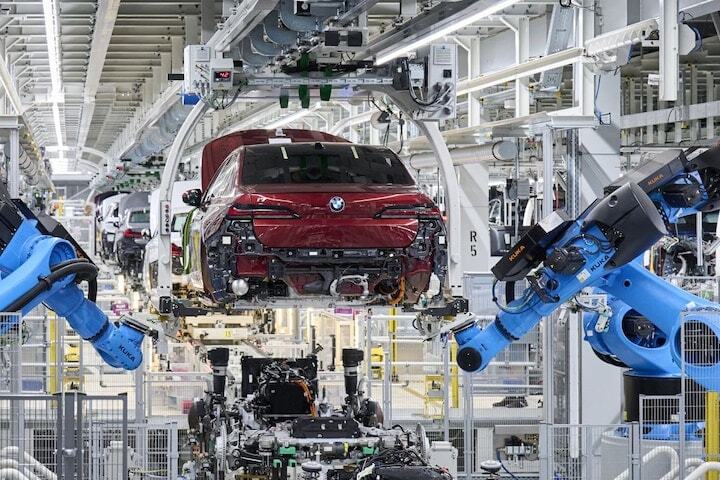Nu al fabrieken stil

Na corona waren productiestops door onderdelentekorten aan de orde van de dag, maar volgens verschillende brancheorganisaties hangt er een soortgelijk scenario in de lucht. Ditmaal zouden exportrestricties van China de oorzaak zijn.
Brancheorganisatie voor toeleveranciers CLEPA trekt tegenover onder meer Reuters flink aan de alarmbel. Verschillende Europese autofabrieken zouden het werk nu al tijdelijk hebben stilgelegd of tenminste teruggeschroefd, maar als er niets veranderd kan dat volgens CLEPA tot veel grotere problemen leiden.
De oorzaak moet worden gezocht bij exportbeperkingen die de Chinese overheid heeft ingevoerd op zeldzame aardmetalen, magneten en andere bestanddelen die van levensbelang zijn voor de rap elektrificerende auto-industrie. Voor de export van zulke onderdelen is een exportlicentie nodig, en van de honderden aanvragen voor zo’n goedkeuring zou in april slechts een kwart zijn gehonoreerd.
Ook de Duitse brancheorganisatie VDA (Verband der Automobilindustrie) voorziet grote risico’s voor de Europese auto-industrie als dit zo doorgaat, zeker omdat veel Europese autobouwers het toch al zwaar hebben momenteel. Die autobouwers zijn met allerlei diplomaten en overheidsfunctionarissen uit andere werelddelen al druk in gesprek met de Chinese overheid om tot een oplossing te komen, stelt Reuters.
Vorige week werd ook duidelijk dat de Amerikaanse fabriek van Volvo het werk tijdelijk moest stilleggen wegens een tekort aan onderdelen, maar officieel is ook na navraag niet bekend over welke onderdelen dat gaat. De fabriek in South-Carolina produceert inmiddels weer gewoon auto’s, meldt Volvo.
Factories Already Shut Down

After the coronavirus, production stops due to component shortages were common, but according to various industry organizations, a similar scenario is looming. This time, export restrictions from China are said to be the cause.
Industry organization for suppliers CLEPA is raising the alarm significantly to Reuters, among others. Several European car factories are already said to have temporarily shut down or at least scaled back operations, but if nothing changes, this could lead to much bigger problems according to CLEPA.
The cause should be sought in export restrictions imposed by the Chinese government on rare earth metals, magnets and other components that are vital to the rapidly electrifying automotive industry. An export license is required for the export of such components, and of the hundreds of applications for such approval, only a quarter would have been granted in April.
The German industry association VDA (Verband der Automobilindustrie) also foresees major risks for the European automotive industry if this continues, especially since many European car manufacturers are already having a tough time at the moment. Those car manufacturers, along with various diplomats and government officials from other parts of the world, are already in talks with the Chinese government to find a solution, Reuters says.
Last week it also became clear that Volvo’s American factory had to temporarily shut down operations due to a shortage of parts, but officially it is not known, even after inquiry, which parts are involved. The factory in South Carolina is now producing cars again as normal, Volvo reports.